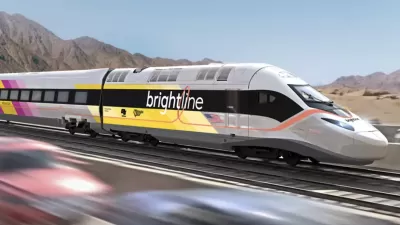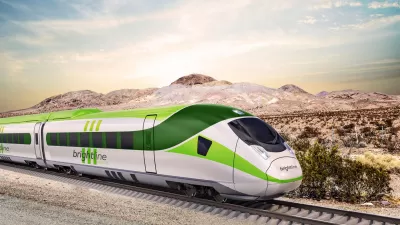Economist Edward L. Glaeser crunches the numbers on a hypothetical high speed rail line between Dallas and Houston and finds the costs prohibitive.
"I'm going to frame the discussion around an imaginary 240-mile link between Dallas and Houston, but the basic formula for direct costs and benefit is general:
Number of Riders times (Benefit per Rider minus Variable Costs per Rider) minus Fixed Costs.
I'm simplifying, but a formula needs to be simple if interested parties can seriously debate the numbers, and the only way that America is going to get to the right answer on public investments is if numbers trump rhetoric. I will plug illustrative figures into the formula, but not only am I well aware that every number here is debatable, I am hoping for just that debate."
He bases his figures on comparable costs from other rail lines from around the world, as well as estimates of interest rates on the bonds and loans required to fund the project.
Thanks to Reconnecting America
FULL STORY: Running the Numbers on High-Speed Trains

Maui's Vacation Rental Debate Turns Ugly
Verbal attacks, misinformation campaigns and fistfights plague a high-stakes debate to convert thousands of vacation rentals into long-term housing.

Planetizen Federal Action Tracker
A weekly monitor of how Trump’s orders and actions are impacting planners and planning in America.

In Urban Planning, AI Prompting Could be the New Design Thinking
Creativity has long been key to great urban design. What if we see AI as our new creative partner?

How Trump's HUD Budget Proposal Would Harm Homelessness Response
Experts say the change to the HUD budget would make it more difficult to identify people who are homeless and connect them with services, and to prevent homelessness.

The Vast Potential of the Right-of-Way
One writer argues that the space between two building faces is the most important element of the built environment.

Florida Seniors Face Rising Homelessness Risk
High housing costs are pushing more seniors, many of them on a fixed income, into homelessness.
Urban Design for Planners 1: Software Tools
This six-course series explores essential urban design concepts using open source software and equips planners with the tools they need to participate fully in the urban design process.
Planning for Universal Design
Learn the tools for implementing Universal Design in planning regulations.
Gallatin County Department of Planning & Community Development
Heyer Gruel & Associates PA
JM Goldson LLC
City of Camden Redevelopment Agency
City of Astoria
Transportation Research & Education Center (TREC) at Portland State University
Jefferson Parish Government
Camden Redevelopment Agency
City of Claremont





























